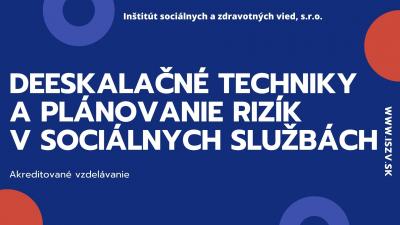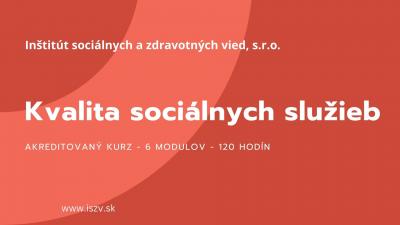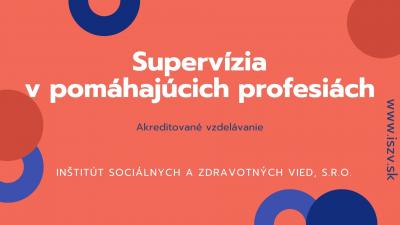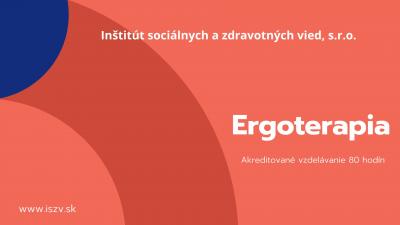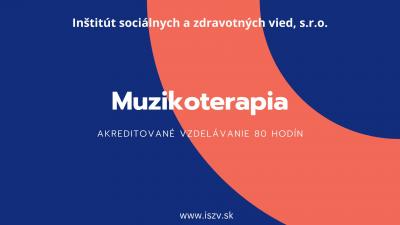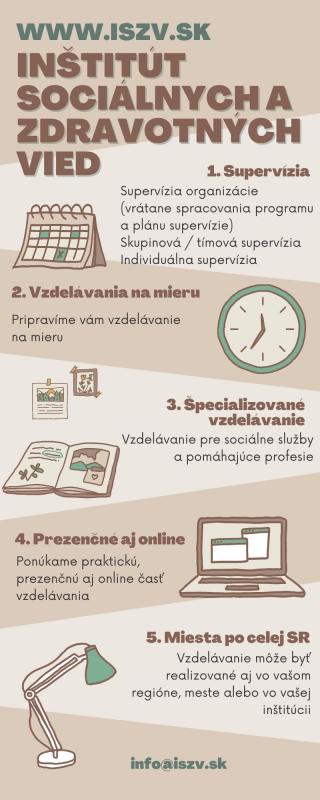Abstract: Global demographic revolution and continuing economic and financial crises create challenges for social welfare as well locally in Slovakia. Fast transition period from communist paternalist state into developed donor country with high economic growth did not fully correspond with inclusive social growth and better life (happiness, satisfaction) of the major part Slovak citizenship. One of the highest growths of the GDP capita in the European Union is accompanied with high citizens’ dissatisfaction with the life in the country.
Almost without intergenerational and regional solidarity, the growth of dependent not active population and increasing share of poor people (also children) threaten the social welfare and guaranteed social rights of the future generations in Slovakia.
Austerity measures results in the rise of social insecurity. Social security scheme is jeopardized by cost saving steps that threaten future sustainability of decent life. There is no more possibility for cut-down of social benefits as they altogether mostly below the level of surviving. Sustainable cost saving measures without pro-future oriented investment is not way how to guarantee sustainable decent life in the country.
Social work education has to be prepared to answer to these new circumstances.
Keywords: Demographic revolution, social insecurity, social welfare, social work, solidarity, transition.
Global demographic revolution and continuing economic and financial crisis create challenges for social welfare as well locally in small Slovakia in center of Europe. Her present generation was witness of fast transition from communist centralized paternalist state into developed donor nation with high economic growth that did not always fully correspond with promised inclusive social growth and better life of the whole Slovak society.
During the communist run administration between the years 1948 and 1989, the social policy was fully financed from state budget. State budget was in service of centralized paternalistic totalitarian state. State paternalism gave guarantees of relatively equal social safety. People used to live under such a condition as a common standard. After fall down of the Soviet empire and success of the Czechoslovak velvet revolution has been newly peacefully re-introduced democracy into this part of Central Europe. Return of capitalism by privatization and by restitution of national property and transformation from planned to market economy changed the nature of the state.
Reality of the state was rapidly changed from planned into market economy by using of not fairly wild privatization, where future preselected owners buy fortune for few cents and by using of fraudulent claims in restitution or in auctions. Beside of this semi-legal practices in changing of masters of the state, even scientific books written during the former administration were burnt. As an example this has happened with library of former central research center for regional planning. European Union (EU) is based on planning principle. Later Slovakia was handicapped during the pre-accession negotiation as a result of abolishing planning activities. Europe is now fulfilling her new ten year strategy to the year 2020 and also other instruments like European Social Fund has its own planning periods.
Slovakia was later quite economically successful country and nickname 'Tatra Tiger' appeared after following a program of liberal economic reforms. The name 'Tatra Tiger' derives from the local Tatras mountain range that is also used on the Slovak Euro coin´s backside. Slovakia had one of the highest gross domestic product growth rates in EU. This can be partly ascribed to the newly arrived car production (Volkswagen from Germany, PSA Peugeot Citroen from France and KIA from South Korea). The highest production of cars per capita round the world is this year in Slovakia.
However, public polling shows that despite the resultant high growth rates, the majority of people do not universally approve of the reforms, because they are associated with a drastic loss of the social security. Economic boom is not always guarantee of social peace, if this growth is not distributed fairly among citizens. High disappointment and afterwards social revolt is also possible as it happened in several countries. Economic growth in Slovakia has been accompanied with reform of the previously government-run health system, complete reform of the pension system (“privatization of old-age”), the replacement of progressive taxation with a flat tax, rapid changes of laws and other legal regulations, and with rising property prices. Unemployment jumped to very high levels immediately after the reforms began in 1989 and still is among the highest within European Union (14.71 %, Eurostat, 31/2013). Majority of people without job suffer from long-term unemployment. Young generation is now in the more risky situation to compare with economically active or retired people. Families with children living standards decreased. Care for offspring is now private issue, almost without public support. Slovakia in European comparison belongs to weaker countries for the chance of the child to be discriminated in material necessities, education and in health care. Based on this knowledge, there is in Slovakia mean intra-societal solidarity.
Czechoslovakia (or Czecho-Slovakia) has been created as a result of the First World War after 1918 in the form of unified nation. Name of new state was artificially created by joining words “Czech lands” and “Slovakia” into one. There remain unsolved problems of relation between Slovaks and Czechs. Later in 1968 the state was transformed into the federation of two republics. Bilateral agreement between Czech and Slovak governments allowed creation of two independent states. This Czech and Slovak “divorce” has the precedence in Norwegian and Swedish bloodless separation in 1905. These two independent states showed as short lived entities. Big extension of European Union by acceptation of 10 new member states in 2004 changed independency of the Slovak and Czech republics. Instead of two-state federation, they started to live with other 23 member states of EU. European Union has now 27 members and this number is still growing.
Economic and financial growth enabled full membership in the Organization for Economic Cooperation and Development (OECD) in 2000 as a proof of economic progress in Slovakia. Due to sound and stable financial situation in the country it was allowed for Slovaks officially to join Euro area and to start using of common European currency instead of local Slovak money in circulation.
The country became member of intergovernmental military alliance the North Atlantic Treaty Organization (NATO) in 2004 in the same year as EU membership. Land-locked and formerly isolated country abolished its border control after becoming part of the Schengen agreement. Slovakia has now only a short border with Ukraine. It is allowed today for all Slovak residents to travel without custom or passport control anywhere within Schengen agreement parties (26 European countries). Visa requirements were cancelled with many other countries (like Canada). The Slovak Republic enjoys so called Visa Waiver Program (ESTA) since 2008. Slovaks now can even enter to the U.S. without visa.
This everything happened in relatively very short time. The life of local people is very different from the time of former communist Czechoslovak regime. Do they live better? Are they more satisfied, healthier and do they live more happy life? There are new challenges raised by current economic and demographic changes. Lasting global financial crisis, uncertain future of European unification, aging of society and shortage of labor force in near future are some of fundamental issues.
One of the highest growths of the GDP per capita in Europe is accompanied with one the highest citizens’ dissatisfaction with the life in the country among the OECD member states. Human health is seriously influenced by life satisfaction. Growth of happiness could decrease probability of many diseases incidence. According to study of the OECD in Paris (Better Life Index, 2011), the Slovak society belongs to the least satisfied populations. Lower life satisfaction was only in Estonia, Russian Federation and in Turkey. Satisfaction with life index in 2006 from the University of Leicester rank for Slovakia was 129 from 178 countries. Slovakia officially belongs to the rich part of the world and she does not receive foreign aid. Slovakia established her agency for international help and development and is now donor country. Many of the developing nations that are target for Slovak aid live in happier society.
Huge gap raised in regional disparities in Slovakia. Capital region Bratislava overtook in economic power for instance Prague, Stockholm and Vienna in 2010. Among the leading regions of EU in the ranking of regional GDP per capita in 2010 Bratislava self-governed region achieved 176 % (EU average represents 100%). The rest of the country has got only one third of Bratislava region economic power (Eurostat, 46/2013).
European Union policy is based on inclusive growth, cohesion and solidarity among all people, regions and states. Council of Europe also believes that social cohesion is ability to secure prosperity to all people, to minimize inequalities and to avoid polarization. International Labor Organization adopted in Resolution in 2001 that investment into social development is not wastage and later in 2012 ILO has approved right to social minimum in the Social Protection Floor Recommendation.
Weak regional solidarity is accompanied with low level of intergenerational connections. Slovak older people in the age of 65+ have the weakest level of contacts with relatives (Social Participation and Social Isolation, 2010). Low intergenerational and regional solidarity, the growth of dependent not active population and increasing share of poor people threaten the social welfare and guaranteed social rights of future generations in Slovakia.
Public survey among population discovered unemployment as the most frightening life situation in Slovakia. Even people at the age of 43 are without good chance for new employment, due to their “high” age. Flexicurity (flexible employment conditions with security of new job and guaranteed social standard) promoted by EU has small utilization in Slovakia. Flexicurity based on high employability is missing its security meaning there. Unemployment is almost standard situation during work career for majority of citizens. Even long-term unemployment sometimes longer than 8 years is common. The Slovak Republic has the highest share of long-term unemployed people -9.2% (Eurostat data). All EU member states have 4 % on average, which means that in some countries this problem does not exist, like in neighbour country Austria. Generally people without job for long time almost lost their capacity of employability. Even under the theoretical condition of job possibilities surplus, they are not able to start to work by their own decision. They do not have enough will-power. They need professional treatment and help.
Employment rate in health and social work in Slovakia is far below the EU average and this rate even decreased and 2000 – 2009 (p. 11, Second Biennial Report, 2010). Employment, Social Policy, Health and Consumer Affairs Council of EU member states ministers (EPSCO) has recommended in 2012 (p. 12, Annual Growth Survey) initiatives that facilitate the development of sectors with the highest employment potential, including in health and social sectors ('white jobs'). Social sector jobs high potential is in Slovakia due to the gap of employment rates and this sector to compare with EU average.
OECD December 2012 report on Slovakia urged to do more to tackle problems on the labor market with long-term unemployment being among the highest in the 34-member organization of industrialized nations. Slovak economy dominated by car and electronics exports has been grappling with rising joblessness since the global downturn hit in late 2008. Slovakia has one of the highest rates of unemployed youth and graduates (about 13 % higher than EU average). School leavers belong among marginalized group from the point of view of the labor market. In some regions over 40 % of them are unemployed. Young people are more often in risk of poverty than retired people.
Unemployment rate in Slovakia is characterized with high regional difference with worsening of the situation from the west to the east of the country according to geographic orientation. Statutory age of retirement is 62 years. In practice employed people in the age of 58 and plus represent now minority from active labor force. The earliest exit age from the labor market from all EU member states is in Slovakia (Eurostat online data, 2009). Ageism and age stereotypes that exist also in private life are serious problems in the country. Slovak people usually think of anybody as an old person or too old to work 3 – 5 years earlier than European standard is. Not surprise that students of social work describe in their final graduation theses people at the age of 50 or less as an old people (“seniors”).Quotations like that older people “uselessly occupy jobs” suitable for younger are not rare. Older workers are equally important also for younger. Countries with shortage of jobs do not have them for all generations and oppositely. Concept of old age uselessness appeared during industrial revolution. For today´s work life it is outclassed discrimination and not protection of older people. Special international instrument on the rights of older people could be beneficial.
It is estimated that one tenth of Slovak population is Roma people. This population is autochthone minority living continuously there since the 15th century. After turbulent history they are not integrated. Majority population lives mostly separately from them. Main issue is 80 % unemployment among Roma people. This creates heavy burden for social scheme. So far no sustainable solution has been found. How can be living Slovak society with growing number of foreign born people, if so far did not find way how to live peacefully and meaningfully with their own citizens with different colour of skin?
Inadequate health situation is also the result of social inequalities in the state that are higher than in other European nations. Healthy life length is only 3 years for people in the age of 65+ in Slovakia. Healthy life measures the number of remaining years that a person of a particular age can expect to live without disability. The average length of healthy life for the rest of Europe in 2010 was 9 years (Eurostat, 60/2012). Two almost equal populations in former Czechoslovakia after 20 years of separation are now two different Slovak and Czech populations according to healthy lives.
Social work is generally acknowledged as human rights profession. Social workers must minister to solve problems and to utilize possibilities the current crises are offering. Social work in Slovakia has to be more socially proactive. Health inequalities result either from social inequalities. Low investment in social development and social policy resulted in bad health condition of the population. Health inequalities in Slovakia are not inevitable or immutable. It is said in Slovak legislation that everyone has a right to the protection of his/her health. Based on public insurance, citizens have the right to free health care and to medical supplies under conditions defined by law. Common life is now in strict opposition.
Aging of society, long-term low fertility and projection of the Slovak population decline will influence future sustainable decent life in the country. Demographic projections expects for Slovakia population decrease accompanied with three times higher old age dependency rate in 2050. Reduction of the citizens’ quantity with changes in demographic structure what is generally expected, will reduce potential of disposable labor force either in the sphere of highly demanded social and health services.
Aging of society is result of different model of fertility behaving. It is not result only of postponing of the first childbirth, but the impact of catastrophic low fertility rate. The fertility rate is lower than during the Second World War. At the beginning of the 19th century average number of children per one Slovak woman was 5.9 and in 2009 it was only 1.3. This is not only challenge of Slovakia. Aging is part of globalization. Fertility rate below 2.1 children per one woman means depopulation of the country. The Geneva Association shows that Japan reached this limit in 1955, Russia in 1965, Australia in 1975, South Korea in 1985, China in 1990, Thailand in 1995, Brazil in 2005, USA in 2010 and is estimated Mexico in 2015, India in 2025. Slovakia did it in 1989. So far best solution was importing of new citizens. As this low fertility is spreading through the world, there will be no country with free labor force. Also Slovakia will shortly discover that there is no country for possible “import” of guest workers or “new Slovaks”. Because the third world is also following model of one/or no child per family. Shortage of job possibilities soon will be replaced by shortage of work power. Shortage of social workers and nurses will be the most painful for majority of population. Current situation is very serious resulted from crisis in society, improper social policy and long-term problems. Europe was and is a continent of migrants. It is deal for today´s Slovak generations to decide in what quality and to whom they want to bequeath their country.
Aging of society (not low fertility) is labelled as threaten to public social schemes. We can call it demographic alarmism. Let us imagine opposite situation. High rate of fertility and abundance of children could create another demographic alarmism, because again there will proportionally not enough economic active people.
Privatization of old-age social schemes was realized with the most expensive promotion campaign in history of Slovakia. Before the start of the reform OECD noticed, that Slovaks need to do certain parametric improvements in pension scheme and it will be stabilized for many years. Nevertheless with support of the World Bank Slovak pension lobby started to privatize old-age security. Collected long-term money changes step-by-step owners of this country from public hands to private pension scheme owners. Never ending changes (amendments) in pension law during the last decade endangered living conditions of people. Social security scheme is curtailed by austerity measures that jeopardized future benefits both in cash and in kind. Elaborated scheme of social protection suffers from budgetary shortage. There is no more possibility for cut-down of social benefits as they are altogether mostly below the level of surviving. Sustainable cost saving measures without pro-future oriented investment is not way how to guarantee sustainable decent life in the country.
Contemporary situation with very weak basic statutory pension scheme creates anticipation of lower old-age benefits for future generations of retired people to compare with present income level of economically not active citizens. Current old-age scheme seems to be not inclusive. It segregates a group of persons (older) as a special part of society with paternalistic designated needs. Even more, retired people will do not have profit from their previous work for society. The reason is in introducing of the new rules for pension benefits valorization, which deprive them from future economic advancement benefits. Expected rising of wages will not influence their old-age income. Slovakia will soon have fundamental problem with people in older age without adequate decent income. Pension scheme alone does not encourage people to prepare themselves to the old age, rather it supports myopia and dissuade from it (Hettes, 2011).
Slovakia has one of the lowest tax collections (including social contributions) that are 28.3 % in 2010 (in % of GDP). For instant in Denmark this rate was 48.5 %. EU average rate was 39.6 %. That means 10 % less in Slovakia (Eurostat 2/2012). Governments of this country voluntarily decreased collection during period 2002 – 2010 by 5 %. The result is in crisis of social state and in situation of proclaimed no money policy for social development. Spending on social protection as percentage of GDP was in 2006 only 15 % to compare with EU average 25 %. This even more threaten social problems solving or any further progressive social development in Slovakia.
Introducing of state policy oriented on weaker public responsibility with reinforcing of private responsibility for social security was not joined with decent income policy. Slovak economy has reached 73 % of EU GDP per capita average in 2010 (Eurostat, 60/2012). To compare the average hourly pay was in Slovakia 8 €, to compare with EU 23 €. That represents roughly 30 %. Slovak labor force is very low cost kind. Slovakia belongs among countries where economic growth is not interconnected with the growth of living standard. Comparable advantage of the country based only on cheap labor power jeopardizes sustainable social development in the country.
Instead of universal coverage in social security mostly voluntary scheme has been introduced. The survey done for ILO (Hettes, 2011) discovered that only one third of population (mostly employees) is covered by public pension scheme and contributes to it. Second third of population is similarly member of the pension scheme, but contributes only the lowest payment amount required by law. Their future old-age benefits should be therefore below social minimum and will need social aid. Last third of population is not part of any pension scheme (unemployed, partly employed, not active, students and others). Decent future life of these people is at risk. Substantial share of economic active population has joint risky private pension scheme that works without guarantees. Half of the above mentioned first third of population are members of such a scheme. It means that their future old-age scheme benefits are not fully guaranteed and would need some social aid. The ILO social protection floor recommendation could be important also for the Slovak “developed” state.
Slovak constitution guarantees that citizens have the right to adequate material provision in old age, in the event of work disability, as well as after losing their provider. Constitutional law also protect that everyone who is in material need is entitled to assistance necessary to ensure basic living conditions. Changes done before and during present crisis activate the rise of social insecurity in Slovakia with long-term worsening of the conditions in near future.
EU is losing its dynamics. Lisbon program (2000 – 2010) was not finalized successfully and new strategy Europe 2020 is not going very well. Main targets of strategy EU 2020 expect to raise the employment rate of the population aged 20 – 64 from the current 69 % to at least 75 %. Slovakia choose easier final target 71 – 73%. In research it is in Slovakia only one third of EU goal. Likewise in environment (greenhouse gas emissions, renewable energy and energy efficiency) the country has weaker objectives. The Slovak government accepted plan to reduce share of early leavers and share people with completed tertiary education not very ambitious. Similarly it is in fighting with poverty. This does not guarantee people and progress friendly policy. Keeping status quo under worsening global position is short-sighted policy.
Main problems and challenges for the Slovak society we can find there.
- Slovaks as people are endangered (fertility rate lower than during the 2nd world war). This will result in near future in shortage of nurses, social workers and labor force generally. The problem is globally growing.
- Shortage of job opportunities with highest rate of long-term unemployment. They need professional help due to low level of employability. National policy has to be more socially focused.
- Damaged intergenerational relationships and solidarity needs immediately treatment. There is the highest level of older people loneliness within EU. Future care has to be realized in cooperation with informal providers and by community. Without family members, relatives, friends, neighbours and volunteers it will be hardly manageable.
- High rate of dissatisfaction with life is imperilling social stability and can impose unrest in state. This is also one of the inducement of high mortality and worsening of health conditions. Another reason is difficult access to health care due to increase in required financial participation for many citizens.
- High sustained GDP growth in Slovakia is positive, but it is almost no interconnected with the corresponding growth in standard of life. Small percentage of rich people becomes richer during current crisis. Cost of social state is borne by continuously weaker middle class (mostly employees). Average income in Slovakia is now higher than in the Czech Republic and other seven Central European member states of EU (Eurostat, 35/2012). Majority of population receives much less. Economic success is accompanied with unfair distribution of fortune in Slovakia. Citizens of all generations have to have right to participate on this success. Better solidarity between classes could protect sustainable decent life in the country to all people.
- Huge regional discrepancies undermine cohesion, which is backbone of European unification. Backward regions are not promoted for economic and social development.
- Low remuneration does not give any space for increasing of tax (and social contribution) and together with reduced number of taxpayers resulted in slim budget. This was used as a proof of necessity to reduce or even dismantle social policy. Flat tax policy excluded better off part of society to solidarize with majority.
- Social work as human rights profession has to be more active. Health inequalities are also results from social inequalities and thus health is social work issue. Health inequalities are not inevitable or immutable. Social work education has to be prepared to answer to these new circumstances.
- More responsible sustainable decent life friendly policies are inevitability on national and global levels.
Lot of problems is waiting for social work in connection with social security destabilization. There will be insufficiency of social work professionals. Slovakia will have no proper sources to recruit them from abroad. Decisive part of society perpetually is omitting this issue mainly in state budget. Volunteering, mutual and spontaneous help and other informal forms of social service could not fully saturate all needs even after their full development.
Author: doc. RNDr. Miloslav Hetteš, CSc.
References
Annual Growth Survey 2012(2011) Council of the European Union Brussels 17229/11: 1-19
Better Life Index (2011) OECD Paris, http://www.oecdbetterlifeindex.org/
Euro area unemployment rate at 11.9 % (2013) Brussels Eurostat 31/2013: 1-4
Health in the EU27 in 2010(2012) Brussels Eurostat 60/2012: 1-2
GDP per Capita in the Member States Ranged from 45 % to 274 % of the EU27 Average in 2011, First Estimates for 2011 (2012) Eurostat 97/2012 Brussels: 1-3
HETTES M. (2011) The Pension System in the Slovak Republic Pension Reform in Central and Eastern Europe ILO Budapest ISBN 978-92-2-125639-7: 267-304
Health in The EU 27 in 2010, at the Age Of 65, both Women and Men are Expected to Live a Further 9 Years in a Healthy Condition (2012) Eurostat 60/2012: 1-2
LIEDTKE P. M. (2011) Reforming Pension Systems: Fertility, Dependency and Participation Rates The Four Pillars No. 48 The Geneva Association, Geneva ISSN 1605-8305: 1-3
MILUSHEVA B., Peter GAL P. (2012) Income per capita varied by 1 to 4 across EU countries
Brussels Eurostat 35/2012: 1-12
OECD Economic Surveys. Slovak Republic (2012) OECD Overview Paris: 1-30
Regional GDP per capita in the EU in 2010: eight capital regions in the ten first places (2013) Brussels Eurostat 46/2013: 1-7
Recommendation Concerning National Floors of Social Protection (2012) Recommendation 202,International Labor Conference ILO Geneva: 1-6
Second Biennial Report on social services of general interest (2010) Brussels 22. 10. 2010 SEC (2010) 1284 final: 1-124
Social Participation and Social Isolation (2010) Eurostat Brussels ISBN 978-92-79-16750-8: 1-50
Social Security, 2001: A New Consensus (2001) ILO Geneva ISBN 92-2-112624-2: 1-114
WAHRIG L. (2012) Tax Revenue in the European Union Brussels Eurostat 2/2012: 1-8
Biographical notes:
Miloslav Hettes is an university lecturer (applied social policy, social security, social services, employment policy) in St. Elizabeth University of Health and Social Sciences in Bratislava and in Constantine the Philosopher University in Nitra.
M. Hettes was a Chair of UN working group on aging in Geneva and was vice-chair of the UN Committee on Social Development and the UN Committee on Sustainable Development in New York. M. Hettes has experiences with work in Bosnia and Herzegovina (Social Protection System) and Macedonia (Labor Law). M. Hettes has worked for many years in senior positions in national administration of Slovakia. He worked for diplomatic mission to the UN (New York). He is also founder of the local self-government in Slovakia and he was the first president of the national association of municipalities.
M. Hettes holds Ph.D. He is an Associate Professor in social sciences.
Awards:
2000 – Gold Medal “Merit for the Founding of Local Democracy”
2010 – Gold Medal “Merit for Activities in International Social Policy”
Last publications:
2011 – Pension Reform in Central and Eastern Europe, Slovakia, ILO, Budapest
2012 – Aging of Society for Social Workers, St. Elizabeth University of Health and Social Sciences, Bratislava
2013 – Social Cohesion and Security in Social Work, Constantine the Philosopher University, Nitra
